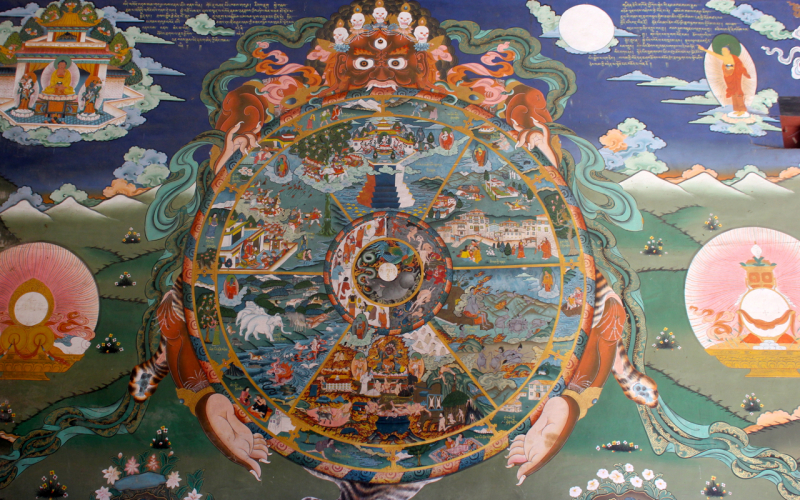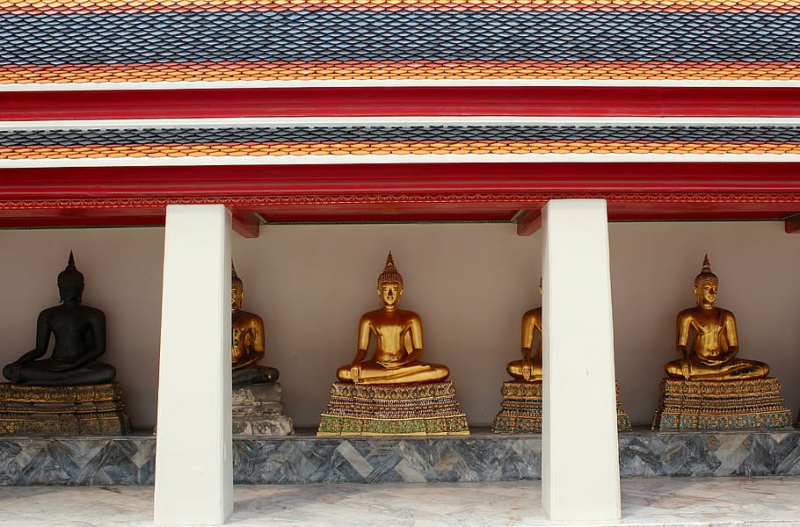Reincarnation
Reincarnation is central to Buddhism's beliefs about death, providing unique viewpoints on the uninterrupted flow of consciousness and the cyclic nature of existence. Reincarnation entails the journey where an individual's consciousness embraces a fresh physical or mental form upon death. This unbroken stream of awareness suggests that the essence of an individual endures beyond the confines of demise.
Reincarnation maintains a profound connection with the law of karma, which asserts that every action carries repercussions. Constructive activities produce positive karma, whereas detrimental actions result in negative karma. These imprints of karma wield influence over the conditions of subsequent rebirths. The perpetual sequence of birth, death, and resurrection persists until an individual transcends the cycle, achieving liberation through spiritual enlightenment.
Reincarnation opens the possibility of experiencing rebirth across various realms of existence, collectively called the "Six Realms." These realms encompass celestial, human, animal, hungry ghost, infernal, and divine dimensions. The domain into which an individual is reborn is shaped by the amalgamation of their accumulated karma and prevailing mental disposition.
The conviction in reincarnation catalyzes virtuous living, given that one's deeds in each existence intricately mold the tapestry of their forthcoming lifetimes. Buddhists dedicate themselves to nurturing constructive karma through acts of virtue, generosity, compassion, and meditative practice, intending to foster propitious circumstances in their subsequent reincarnation.












